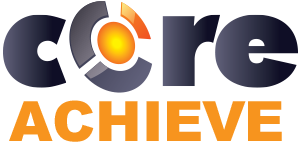Using an LMS for the Unexpected: On-the-Job Training
May, 11 2023
Other posts:
Enhancing Team Dynamics for Effective Group Decision-Making with LMS Integration
Organizations increasingly rely on collaborative efforts to solve complex problems, innovate, and adapt to change, but how do we ensure that collaboration is happening.
Maximizing Small Business Potential with Training Technology
Training technologies can push small businesses ahead of their competitors, but what are the factors that go into choosing the right technology?
Unlocking Employee Potential: The Transformative Benefits of an Interactive Learning Management System (LMS)
Interactive training allows for unlocking employee potential, but how is it done?
Building a Robust Sales Pipeline with Training
Every organization wants a streamlined sales pipeline, but building one requires a series of interlocking activities with one of the most important being training.
Strategies for Adapting In-Person Training to Online Platforms
Online training is one of the most flexible ways of delivering training across organizations, but how do you even begin to adapt in-person training into online?
Can you use an LMS for the crucial parts of training like 0n-the-job training? An LMS can augment these training steps, making them far more efficient.
On-the-job training (OJT) is a crucial part of the learning process for many jobs. It involves hands-on experience and learning-by-doing rather than traditional classroom-style training. In recent years, learning management systems (LMS) have become an increasingly popular tool for delivering on-the-job training.
An LMS can be used to create and deliver on-the-job training modules to employees. These modules can be tailored to specific jobs, tasks, or skills and can be accessed from anywhere with an internet connection. They can include interactive elements such as quizzes, simulations, and videos, that make the learning experience far more engaging and effective.
The Benefits of an LMS for On-The-Job Training
On-the-job training with an LMS can have many positive impacts on the cost, variety, and standards for training. Ultimately, how the LMS is implemented to benefit on-the-job training will determine how much mileage an organization can get from this LMS.
Using an LMS for on-the-job training has several benefits. First, it can help to standardize the training process across an organization. This means that all employees receive the same level of training and are held to the same standards. It can also help to reduce training costs by eliminating the need for in-person training sessions and materials.
Another benefit of using an LMS for on-the-job training is that it allows for real-time feedback and assessment. Employees can complete training modules and receive immediate feedback on their performance. This can help them to identify areas where they need improvement and take action to improve their skills.
In addition to providing on-the-job training modules, an LMS can also be used to support ongoing learning and development. Employees can access a variety of resources, including articles, videos, and webinars, to continue learning and developing their skills over time.
The Challenges of On-The-Job Training with an LMS
While there are benefits to using an LMS for on-the-job training, there are some challenges to implementing an LMS for this specific training. One challenge is ensuring that employees have access to the necessary technology and equipment to access the training modules. However, there are also mental challenges to be overcome like employees being motivated.
To increase user adoption of an LMS for on-the-job training, it is important to communicate the benefits of the training to employees and ensure that they understand how it relates to their job and career development. It is also important to make the training modules interactive and engaging, using a variety of multimedia elements to keep learners interested and motivated.
Standardizing the Process
Overall, an LMS can be a powerful tool for delivering on-the-job training and supporting ongoing learning. By standardizing the training process, providing real-time feedback and assessment, and offering ongoing resources, an LMS can help employees to develop the skills they need to succeed in their jobs and advance in their careers.
Get started with CoreAchieve today.
Photo by ThisisEngineering RAEng on Unsplash

Leave comment: